Our expert guides
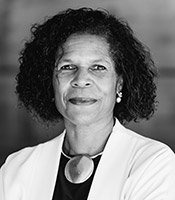
© 2018, Jamie Robbins, JME Photography
Joyce M. Young, MD, MPH
Managing Director, Advanced Wellness Systems
Lead expert for the High Health Network
Dr. Young is a preventive medicine specialist and curator of innovative practices for vibrant living. She founded Advanced Wellness Systems and created the High Health Network to provide effective, science-based, affordable solutions to high-health leaders seeking greater health and well-being for their teams. She has more than fifteen years of experience developing, implementing, evaluating, and consulting on employee health and wellness programs for large corporations, medium and small businesses, state health plans, and state health and human services departments. Dr. Young is board certified in General Preventive Medicine and Public Health and is the author of numerous peer-reviewed publications on wellness program design and outcomes. (MD: Cornell University Medical College. Master of Public Health: Harvard University School of Public Health. Postgraduate training: Johns Hopkins University Medical Center.)
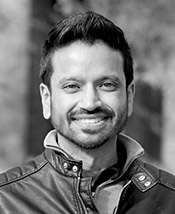 Avik Basu, PhD
Avik Basu, PhD
Lecturer and Research Area Specialist Senior, School of Natural Resources & Environment, University of Michigan
Dr. Basu is a researcher and lecturer in environmental psychology. His research includes sustainable development in the developing world, understanding the differences between experts and laypeople in environmental decision-making, designing sustainable developments to be more acceptable to rural residents, promoting the adoption of sustainable transportation, and designing environments that simultaneously enhance individual and communal well-being. Over the last decade, he has been part of a collaborative effort to develop a framework, known as the Reasonable Person Model, to help practitioners from various disciplines become better at creating conditions that improve human well-being. He is a co-editor/co-author of a book on these topics called Fostering Reasonableness: Supportive Environments for Bringing Out Our Best. (PhD, Environmental Psychology: University of Michigan. MS, Electrical Engineering: University of Michigan.)
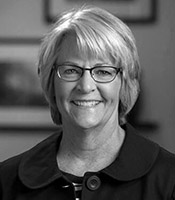 Deborah Douglass, PT
Deborah Douglass, PT
Orthopedic and Sports Medicine Physical Therapist
Debbie Douglass is a physical therapist specializing in orthopedics and sports medicine. During the past thirty years, she has worked primarily in sports medicine with a variety of clients—from mildly active people to professional athletes. In order to more comprehensively assist her clients, Debbie specializes in a “whole body” approach to movement. She looks at an individual’s foundational movement patterns and assesses the need for corrective activities that allow the person to move well in their environment, to prevent injury, and to optimize energy and vitality. (BS, Physical Therapy: University of Massachusetts Lowell.)
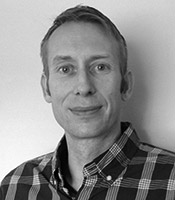 Jason Duvall, PhD
Jason Duvall, PhD
Lecturer, Program in the Environment, University of Michigan
Dr. Duvall is a lecturer and researcher at the University of Michigan, where he received his PhD in the School of Natural Resources and Environment. He is broadly interested in understanding how environments impact people’s ability to function effectively and how health-related beliefs and motivations interact with and influence pro-environmental behavior. His research has focused on the use of nearby nature and environmental engagement to support and encourage more physically active lifestyles. Jason has also worked with the Sierra Club to explore the impact that group-based nature recreation experiences have on military veterans. His work has appeared in academic journals, such as the Journal of Environmental Psychology, and has been referenced in a variety of popular-press articles. (PhD and MS, Natural Resources & Environment: University of Michigan.)
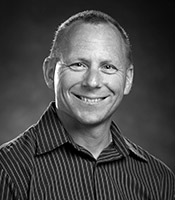 Joseph G. Grzywacz, PhD
Joseph G. Grzywacz, PhD
Department Chair and Norejane Hendrickson Professor of Family and Child Science, Florida State University
Dr. Grzywacz is an interdisciplinary social scientist who focuses on human health and the health-related implications of everyday work and family life. His research has been continuously supported by the National Institutes of Health (NIH) for the past 13 years. Dr. Grzywacz has published over 200 peer-reviewed articles in the American Journal of Public Health, Journal of Occupational and Environmental Medicine, Journal of Health and Social Behavior, Social Science & Medicine, Journal of Occupational Health Psychology, and elsewhere. He has specific expertise in assessing “complete health” (the idea that health is more than the absence of illness) and in translating scientific evidence into practical strategies for promoting human health and well-being. (Post-doctoral training: The Social Ecology of Health, University of California, Irvine. PhD, Child and Family Studies: University of Wisconsin. MS, Human and Community Resources: University of Wisconsin-Stevens Point. BS, Health Promotion/Wellness: University of Wisconsin-Stevens Point.)
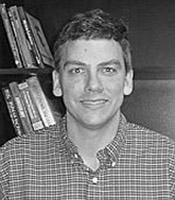 Nicholas P. Murray, PhD
Nicholas P. Murray, PhD
Associate Professor, Department of Kinesiology, East Carolina University
Dr. Nicholas P. Murray is an Associate Professor in the Department of Kinesiology at East Carolina University and Director of the Visual Motor Laboratory. He has more than 20 years of experience as well as numerous peer-reviewed publications examining antecedents and consequences of environmental factors that affect human physiology. Dr. Murray has expertise in a variety of physiological and behavioral measurements including: heart rate, heart rate variability, electromyography (muscle activity), electroencephalogram (brain activity), eye movement measurement; and electrodermal response. (PhD, Applied Physiology and Kinesiology: University of Florida. MS, Education: Virginia Tech.)
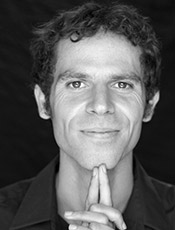 Daniel Rechtschaffen, MA, LMFT
Daniel Rechtschaffen, MA, LMFT
Director, Mindful Education Consulting
Daniel Rechtschaffen is the author of The Way of Mindful Education and The Mindful Education Workbook. He is the director of Transformative Educational Leadership and organizes the annual Mindfulness in Education Conference and Teacher Training at the Omega Institute. Daniel offers keynote speeches and mindfulness trainings at conferences, schools, and businesses around the world, such as University of Wisconsin Madison, Google, and the Esalen Institute. Daniel teaches mindfulness through music, sports, storytelling, games, and in other creative and engaging ways. He is inspired to utilize mindfulness to help us become more conscious, compassionate, and committed to taking care of this miraculous world we live in. He is also the director of the Mindful Education Online Training, a mindfulness and social-emotional learning platform for educators. (MA, Counseling Psychology: California Institute of Integral Studies.)
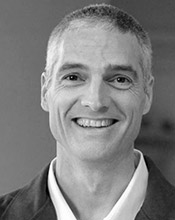 Michael F. Steger, PhD
Michael F. Steger, PhD
Director of the Center for Meaning and Purpose
Associate Professor of Counseling Psychology and Applied Social and Health Psychology, Colorado State University
Dr. Steger is the Director of the Center for Meaning and Purpose, and has spent more than 15 years researching the factors that promote human flourishing and ameliorate psychological suffering. His primary line of research focuses on understanding how people find meaning in their lives and in their work. He is the developer of the most widely-used measure of meaning and purpose in the world, the Meaning in Life Questionnaire. He has published more than 100 peer-reviewed journal articles, book chapters, and books, including Designing Positive Psychology and Purpose and Meaning in the Workplace, as well as the forthcoming Handbook of Positivity and Strengths-Based Approaches at Work. He enjoys providing keynote speeches, workshops, trainings, and consulting around the world on the topics of meaning, purpose, meaningful work, calling, and psychological strengths. (PhD, Counseling Psychology and Personality Psychology: University of Minnesota. MS, Counseling: University of Oregon.)
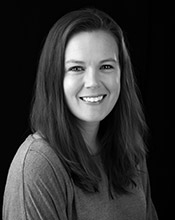 Laurel M. Wentz, PhD, RD, CSSD, LDN
Laurel M. Wentz, PhD, RD, CSSD, LDN
Assistant Professor, Nutrition and Healthcare Management, Appalachian State University
Dr. Wentz is an Assistant Professor in Nutrition at Appalachian State University, a Registered Dietitian, and a Board Certified Specialist in Sports Dietetics. She has been a dietitian for the Athletic Department at Florida State University and for the U.S. Army 3rd Special Forces Group (Airborne) at Fort Bragg, North Carolina, where she had the opportunity to work with both athletes and elite service members. In her post-doctoral training at Bangor University, UK, Dr. Wentz completed a clinical trial to improve performance and immune function in British military recruits. Her research focuses on nutrition to improve health and performance and examines how nutrition influences metabolism, inflammation, and immune function during exercise. (PhD, Nutrition and Food Science with emphasis on Exercise Science: Florida State University. MS, Food Science and Human Nutrition: University of Florida. BS, Nutritional Sciences: Penn State University.)
Contributors
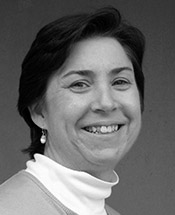 Mary V. Davis, DrPH, MSPH
Mary V. Davis, DrPH, MSPH
Principal and Owner, Project Y Evaluation Services
Dr. Mary Davis is principal and owner of Project Y Evaluation Services, LLC specializing in public health evaluation and applied research consulting, training, and technical assistance services. Dr. Davis has extensive experience with the spectrum of research designs and data collection approaches, including mixed-method designs. She has trained public health students and practitioners in evaluation methods through workshops, formal courses, technical assistance webinars, and through employment opportunities. She has also provided evaluation capacity building assistance to organizations, such as coalitions, public health departments, and foundations. In her 20 year career, she has worked in academia at the UNC Gillings School of Global Public Health as well for a national member association and a for-profit consulting firm. Her areas of expertise include preparedness, health department accreditation, quality improvement, and partnerships. (DrPH: Johns Hopkins University School of Public Health. Masters of Science in Public Health: University of Alabama at Birmingham.)


